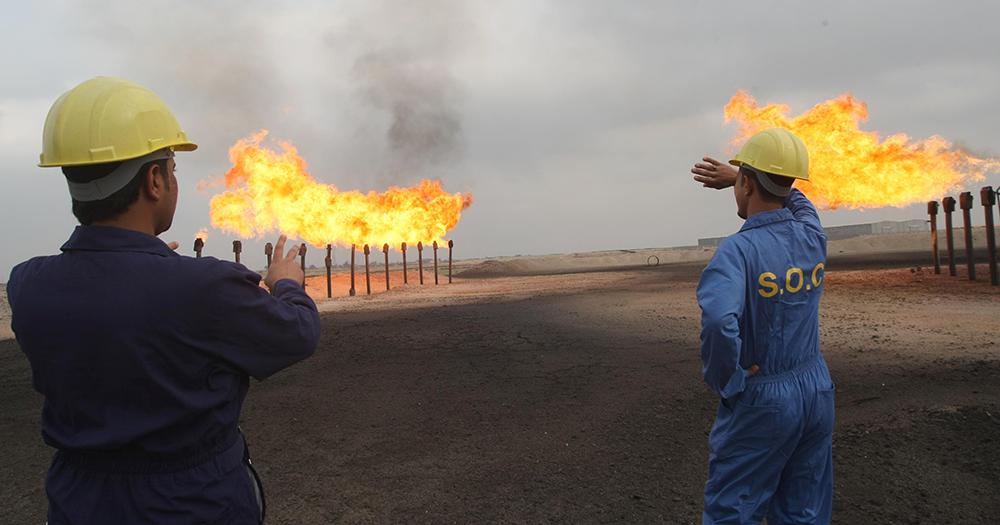China is prepared to bail out Iraq by having the Middle Eastern country sign a multibillion deal with Chinese state-owned company ZhenHua Oil, Bloomberg reported.
Under the deal, Iraq's government will receive cash upfront in exchange for providing long-term oil supplies.
Gulf News further reported that the Iraqi agency overseeing petroleum exports, SOMO, had selected ZhenHua Oil after requesting for bids by oil traders.
A final decision has yet to be made by Iraq's Prime Minister Mustafa Al-Kadhimi, however, as "several offers" are being studied, a spokesperson for Iraq's Cabinet stated.
Should deal go through, China will buy 4 million barrels per month from Iraq
According to SOMO, should the deal go through, it will entail:
- ZhenHua Oil buying 4 million barrels per month from Iraq, or 130,000 barrels per day,
- A one year upfront payment of over US$2 billion (S$2.6 billion), and
- The deal itself running for a period of five years.
Iraq's economy is struggling
The deal will provide a crucial lifeline to help the country stay afloat.
Iraq, which has the world's fifth-largest oil reserves, has been been particularly hard-hit by a crash in oil prices triggered by Covid-19, given that crude oil accounts for almost all of the government's revenue.
Its economy has since been estimated to contract by 12 per cent, according to the International Monetary Fund.
Bloomberg further reported that Iraq's government suffers from a monthly shortage of US$3.5 billion (S$4.7 billion) to pay for salaries, pensions, debts and imports.
As such, the government has failed to pay teachers and civil servants on time.
In November, the government approved a funding deficit law, thereby enabling them to borrow up to 12 trillion Iraqi dinars (S$13 billion) to pay the salaries of state employees, which were delayed by nearly two months at that time, Al-Monitor reported.
The government is also mulling introducing a value-added tax of 12 per cent to help raise revenue. However this has raised concerns that the tax would further burden the poor, with companies raising the prices of goods, and that the taxes would be used to finance the parties and militias running the country instead.
Totally unrelated but follow and listen to our podcast here
Top photo by ESSAM -AL-SUDANI/AFP via Getty Images
If you like what you read, follow us on Facebook, Instagram, Twitter and Telegram to get the latest updates.
